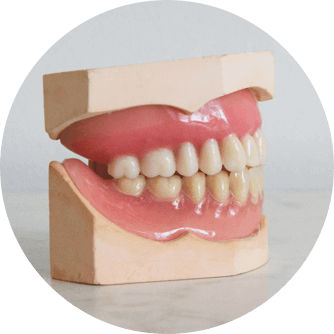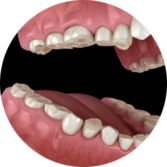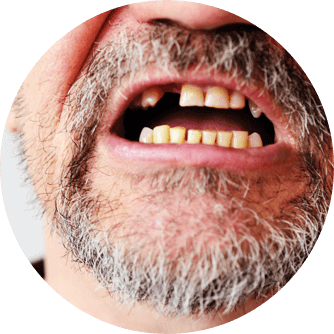Receding Gums
Receding Gums Problems
What Are Receding Gums?
Receding gums are a common dental condition that occurs when the margin of the gum tissue surrounding the teeth wears away or pulls back, exposing more of the tooth or the tooth’s root. This issue goes beyond aesthetics, as it can lead to tooth sensitivity and even loss if not addressed. The early stages of gum recession might be subtle, often going unnoticed until more significant symptoms appear, such as sensitivity or visible changes in the tooth’s length.
Reasons For Receding Gum
The reasons behind receding gums are varied. One of the most significant causes is periodontal disease, a bacterial infection that damages gum tissue and the supporting bone. Another common factor is aggressive tooth brushing; using too much force or a hard-bristled toothbrush can erode both the enamel and the gums. Genetics also play a role, as some individuals may be more prone to gum disease, regardless of how well they care for their teeth. Lifestyle choices like smoking and poor oral hygiene contribute significantly to gum health, increasing the risk of recession. Additionally, hormonal changes, particularly in women, can make gums more sensitive and more likely to recede. Understanding these factors is crucial in identifying the risk and initiating preventive measures.

The Impact of Receding Gums on Oral Health
Ignoring receding gums can lead to damaging consequences for oral health. As gums recede, the risk of tooth decay increases, especially along the gum line where it’s harder to clean. This exposes the teeth to more plaque buildup. Additionally, receding gums often lead to increased tooth sensitivity due to exposed tooth roots, which can be painful and affect your daily life. Chronic gum recession may also contribute to a misaligned bite or bruxism (teeth grinding), further escalating dental complications. Early intervention and regular dental check-ups are vital in monitoring and managing these risks effectively.
How to Fix Receding Gums?
The approach to gum recession treatment depends on the underlying cause and severity. For many individuals, professional dental treatments such as scaling and root planing – a deep-cleaning process, are effective solutions. In cases where gum tissue has been significantly lost, gum grafts may be employed. This procedure involves taking tissue from another part of the mouth and attaching it to the affected area, covering exposed roots and aiding in gum recovery. For severe gum recession, guided tissue regeneration can be effective, promoting the regrowth of bone and tissue.
Adopting good oral hygiene practices, such as using a soft-bristled toothbrush and proper brushing techniques, and avoiding detrimental habits like smoking, are key to preventing further gum recession and maintaining overall oral health. Regular dental visits for cleanings and check-ups can also help in early detection and receding gums treatment, ensuring a healthier oral environment.
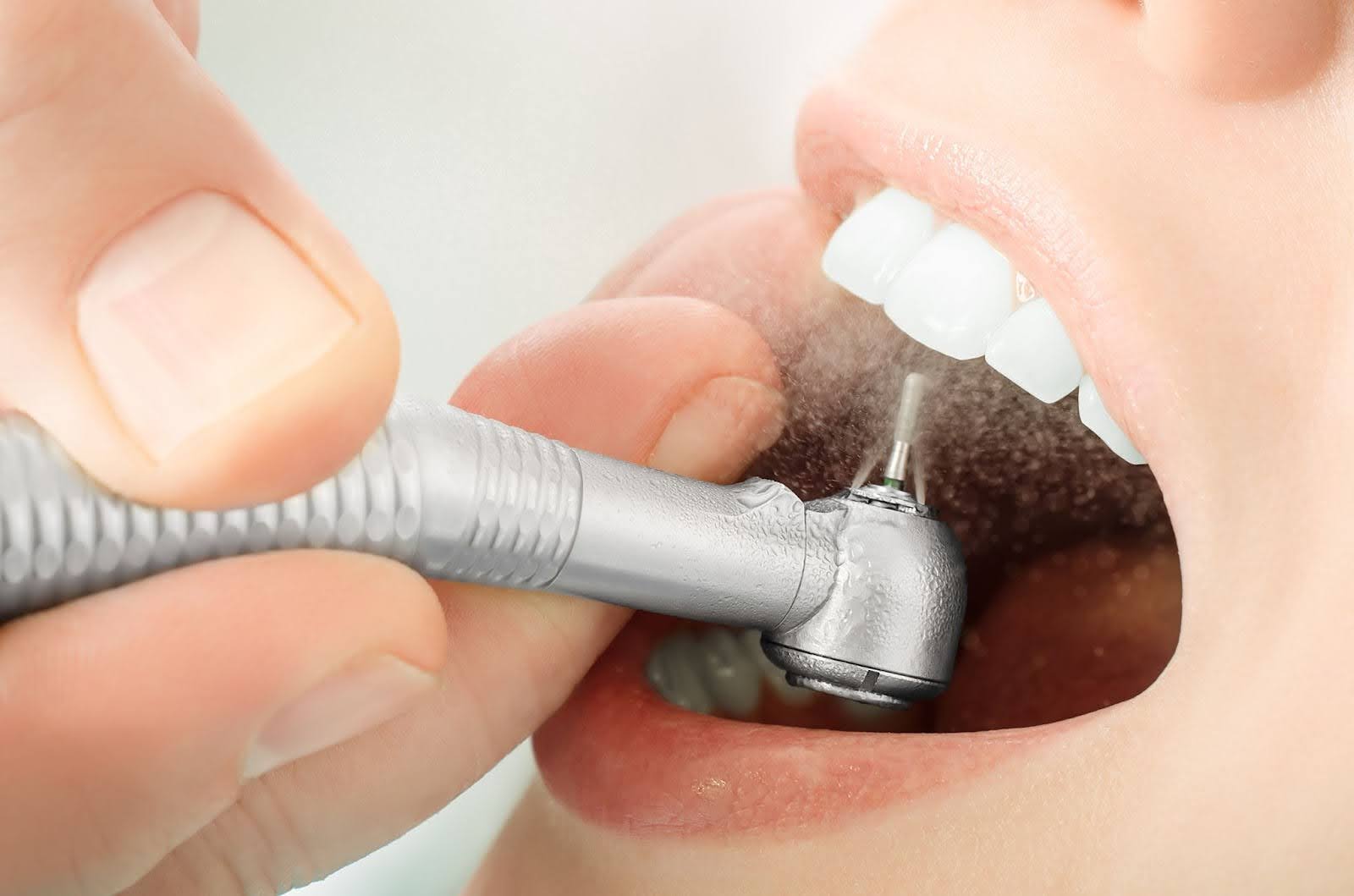
Is it time to straighten your teeth and bring back your confident smile?
We’re human & we’re here to help
Fill out this contact form and we’ll be in touch

